Plan for higher university fees for better teaching
- Published
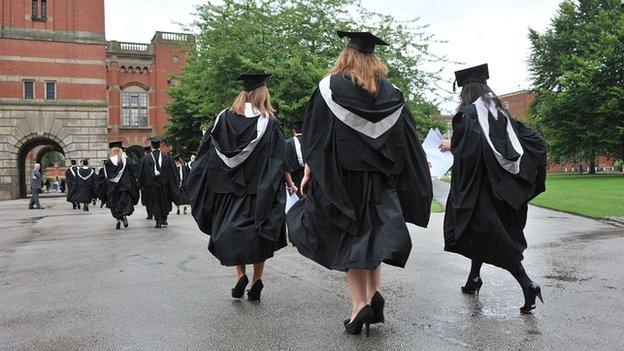
From 2017, some universities will be allowed to charge over £9,000
Universities in England will be able to increase tuition fees above £9,000 from autumn 2017, if they have high-quality teaching, in plans announced by Universities Minister Jo Johnson.
The proposals will also make it easier for new universities to open.
The plans aim to encourage more competition and better consumer value for students.
Labour's Gordon Marsden warned of "inadequate" controls over a "rapid expansion" in new universities.
The proposals, published in a White Paper called Success as a Knowledge Economy, aim to encourage a wider range of new higher education institutions, by speeding up the process allowing them to award their own degrees.
This could include allowing more private institutions to be given university status.
There are also measures to improve the experience of students, by encouraging better teaching and linking this to increases in tuition fees above the current limit.
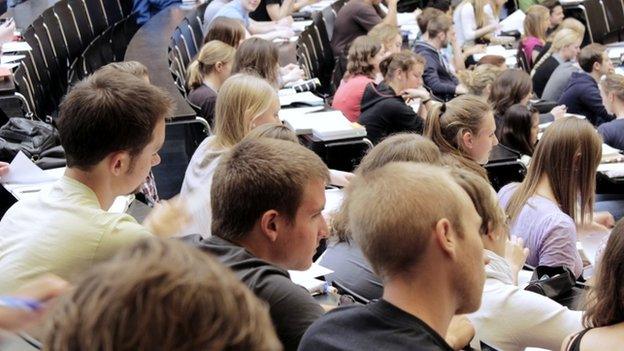
Universities will have to publish more information about who applies and who gets places
Fees will be able to rise in line with inflation above £9,000 for students starting in 2017-18 for universities considered to offer high quality teaching, based on inspections.
The government will announce in 2016-17 which universities will be able to increase their fees.
A further mechanism for measuring teaching quality, the Teaching Excellence Framework, will be phased in over four years.
There are also suggestions that it should be made easier for students to switch courses and universities.
New watchdog
The policy is aimed at encouraging more new and innovative providers into England's higher education system, with ministers saying that the jobs market needs increasing numbers of high-skilled graduates.
But it also wants to address concerns that the consumer rights of students are not being adequately protected.
There are concerns that too many students think the quality of teaching is not good enough or that there are too few teaching hours or insufficient information before beginning a course.
The White Paper is proposing that a watchdog, the Office for Students, should be created.
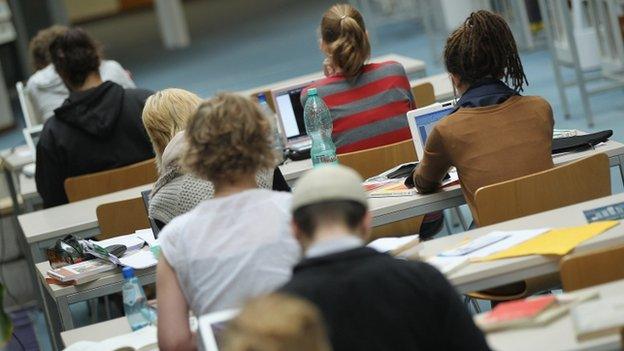
There will be a new Office for Students to help students get value for money
There will also be encouragement for universities to admit students from a wider range of social backgrounds - with warnings that entry to top universities is still dominated by students from wealthier families.
Universities will have to produce much more detailed information about applications and admissions, in terms of ethnicity, gender and family income.
'Extend aspirations'
"Our universities are engines of economic growth and social mobility, but if we are to remain competitive and ensure that a high-quality education remains open to all, we cannot stand still," said Mr Johnson.
"Making it easier for high-quality challenger institutions to start offering their own degrees will help drive up teaching quality, boost the economy and extend aspiration and life chances for students from all backgrounds," said the universities minister.
"By creating the Office for Students, we will put student choice, teaching quality and social mobility at the top of the agenda in higher education."
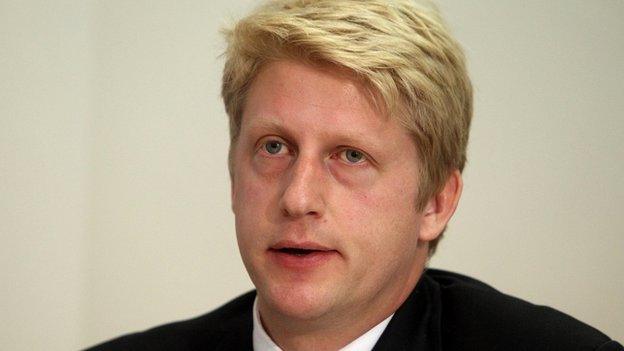
Jo Johnson wants students to have more consumer protection and better quality teaching
Sorana Vieru, vice president of the National Union of Students, said students would be "outraged" at the prospect of tuition fees being increased.
But she welcomed the recognition of the "need for progress on access and widening participations".
Dame Julia Goodfellow, president of Universities UK, warned of the need to protect quality among new institutions.
"It is important also that any new higher education providers awarding their own degrees or calling themselves 'university' meet these same, high standards."
Sally Hunt, leader of the UCU lecturers' union, warned of the "danger of opening up UK higher education to for-profit providers".
'Greater transparency'
Labour's shadow universities minister, Gordon Marsden, warned that it could be "potentially very dangerous" to allow new providers to award degrees too quickly.
"Who would pick up the pieces if it all went wrong?"
But Josh Hardie, CBI deputy director-general, welcomed the push for better teaching and emphasised the economy's need for more high-skilled employees.
"Skills shortages across our country show we need to take action. It's right to focus on high-quality university teaching, as well as giving students and employers greater transparency."
- Published6 November 2015
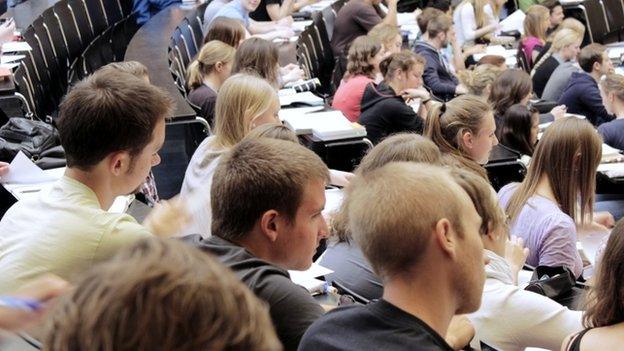
- Published9 September 2015

- Published9 March 2016
